How can we help?
If you have questions about how Sonic Connections can transform well-being through music, here are some answers to the most common queries we receive. Whether you’re contemplating bringing our program to your school/organization, wondering about the specifics of our workshops, or interested in the impact of our methods, dive into the details to learn how we help folks navigate challenges through creativity and resilience.
🎶 Music
Why is music incorporated into the workshop?
Art serves as a bridge between our inner and outer worlds. It’s a unique language that speaks to each of us personally, while uniting us in shared experiences.
We may be biased, but we believe music, in particular, is distinct from other art forms in its functions.
Music aids in identity formation and social integration.
Music empowers us, motivates us, and gives us the courage to face our challenges.
As a source of inspiration for exploration, we use music as a tool for better understanding ourselves, our values, and our capacity for positive behavioral change.
What if I have no musical background or skills?
Participants do not need any musical background to participate in our programs. We mostly pull from the receptive side of music therapy, which means we are listening to pre-recorded music. Participants are not singing or creating music (unless they’d like to).
What kind of music is incorporated? Can I hear a sample?
We explore music across all genres, but mainly pull from instrumental and orchestral music. This is to keep the focus on music’s expression of melody, rhythm, and timbre, over lyrical content.
Think about how movie scores rarely incorporate lyrics, as it would distract from or dictate important plot details. While lyrics are undoubtedly an important component of listening to music, instrumental music provides the blank canvas for participants to tap into their own unique lived experiences.
🧠 Our Approach
What topics do you focus on in the workshop?
Our baseline program focuses broadly on developing well-being and psychological flexibility skills. However, we often tailor our workshops to focus on specific domains and topics according to the needs and goals of our partners, including:
- Leadership development
- Common mental health issues such as stress, anxiety, burnout, loneliness, depression, etc.
- Interpersonal relationships and social connection
- Creative expression
- Holding marginalized identities
- Work effectiveness and job satisfaction
- Team culture and communication
- …and more!
Is this program evidence-based?
Our programs are firmly grounded in empirical methodologies for personal growth and change.
At its core, we derive principles from the receptive side of music therapy and Acceptance and Commitment Training (ACT), a highly effective approach with over four decades of practice and research backing it. Over 1,000 randomized controlled trials have demonstrated the powerful efficacy of ACT and show it to be a potent psychological intervention, often surpassing the therapeutic benefits of traditional CBT.
Why do you focus on ACT and "third wave" CBT in your workshops?
Our choice to focus on Acceptance and Commitment Training (ACT) and psychological flexibility as a core mechanism of change stems from their emphasis on empowerment, self-determination, and personal responsibility. Our programs recognize something that is typically left out of wellness and inclusion spaces: All individuals encounter painful thoughts and feelings as an inevitable part of being human. Rather than avoiding or suppressing these experiences, we empower individuals to confront them with mindfulness and a bias toward action.
In addition, ACT is largely an experiential model. As such, our programs encourage individuals to actively engage with their inner events not only to understand them cognitively, but in an embodied way that promotes self-driven change. While external resources are crucial, we believe the most significant step towards personal transformation often comes from agency from within. We all have the power to choose how we respond to our internal experiences. Through our programs, we aim to equip participants with the tools to harness this power and drive their own journey towards psychological flexibility and wellness.
Who benefits from attending your programs?
Though our story began with supporting traditional college-aged students, anyone can benefit from attending our programs. We design interventions for individuals at various stages of life, depending on the needs and goals of our partners. Whether it’s a student grappling with academic stress, an administrative professional seeking balance, or a company wishing to enhance the mental well-being of their employees, we strive to create safe, inclusive, and encouraging spaces for everyone to connect.
📝 Booking Details
What is included in a workshop booking?
A program booking with us is design to be much more than a one-off intervention. Here’s what you can anticipate:
- Live kick-off workshop: Led by a trained facilitator, we host an event (in-person, virtual, or hybrid) rooted in our music-based curriculum.
- Virtual community: All participants get access to our community, featuring online events, resources, recordings, and trainings at the intersection of art and well-being.
- Marketing and planning support: We work alongside you every step of the way to organize the program, simplifying the planning process, equipping you with materials for successfully promoting it, and taking as much off of your plate as humanly possible.
- Evaluation and data analysis: We provide comprehensive insights demonstrating the impact and ROI of each program. Typically included is a comprehensive report that encapsulates participant feedback and key quantitative takeaways.
Is this a one-time thing? How can students continue growth after the workshop?
Our goal is to help participants understand and embrace that they are always a work in progress, and committing to self-improvement is a lifelong journey. Our programs begin with a single, live workshop and continue with ongoing virtual resources and opportunities that deepen learning around personal growth and human flourishing.
What are your credentials? Is this group therapy?
Our core team collectively has over a decade of experience coordinating and running well-being programs with higher education institutions, companies, and community organizations. We are musicians, educators, and advocates within our communities, and have years of on-the-ground, grassroots experience leading discussions about mental well-being, identity, and mental illness.
Sonic Connections does not offer group therapy. Our expertise is in designing, implementing, and facilitating immersive spaces that help folks connect and explore their experiences through a nonclinical lens, working primarily with thoughts, feelings, and behaviors that are common to many.
Although our approach is grounded in evidence-based practices and some of our facilitators are practicing clinicians, we do not engage in deep pathology. In general, we believe public mental health events are not suitable venues for more serious issues like suicidality, self-harm, traumatic memories, dissociative states, addiction, severe depression, psychosis, OCD, and others. Such issues are outside our scope and typically the domain of clinical psychotherapy.
What does this cost?
We believe in the transformative power of music for mental well-being, and we want as many people as possible to benefit from this program. Understanding that budgets and resources can vary widely among schools and organizations, we operate on a values-based, pay-what-you-can model for our programs.
Our partners choose how much they can contribute based on the perceived value of our program, their resources, and their genuine ability to pay. For entities that have the means, we always encourage allocating the full cost of the program, which supports us in providing our programs to those with tighter resources.


